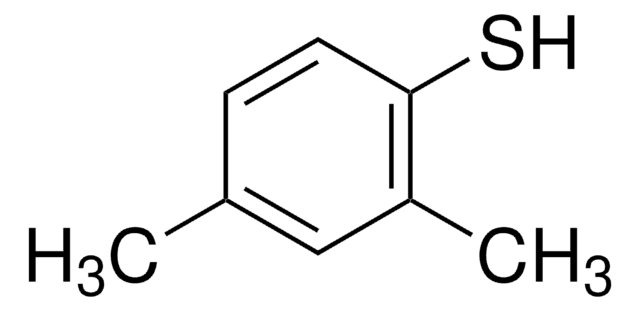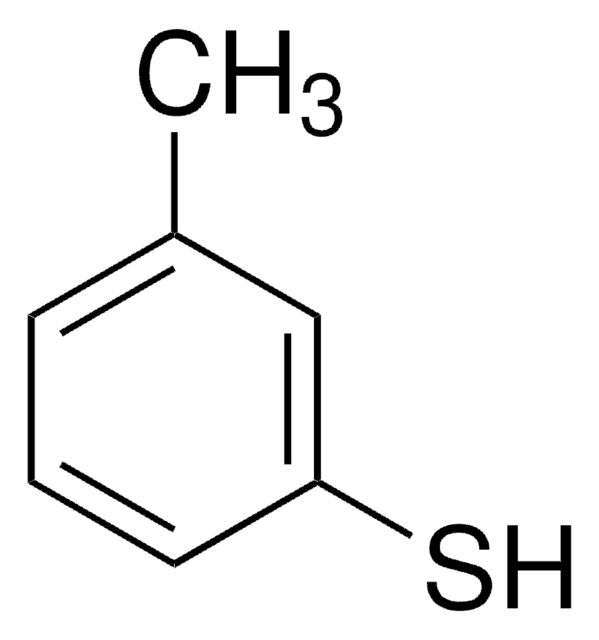252581
2-Phenylethanethiol
98%
Synonyme(s) :
2-Phenylethyl mercaptan, Phenethyl mercaptan
About This Item
Produits recommandés
Pureté
98%
Indice de réfraction
n20/D 1.560 (lit.)
Point d'ébullition
217-218 °C (lit.)
Densité
1.032 g/mL at 25 °C (lit.)
Chaîne SMILES
SCCc1ccccc1
InChI
1S/C8H10S/c9-7-6-8-4-2-1-3-5-8/h1-5,9H,6-7H2
Clé InChI
ZMRFRBHYXOQLDK-UHFFFAOYSA-N
Vous recherchez des produits similaires ? Visite Guide de comparaison des produits
Catégories apparentées
Description générale
Application
- in preparation of biicosahedral Au (25) clusters protected with various types of thiol ligands
- as derivatization reagent for phosphorylated sequences of peptides, for enhancing ionization efficiency in matrix-assisted laser desorption/ionization mass spectrometry
Code de la classe de stockage
10 - Combustible liquids
Classe de danger pour l'eau (WGK)
WGK 3
Point d'éclair (°F)
194.0 °F - closed cup
Point d'éclair (°C)
90 °C - closed cup
Équipement de protection individuelle
Eyeshields, Gloves, multi-purpose combination respirator cartridge (US)
Certificats d'analyse (COA)
Recherchez un Certificats d'analyse (COA) en saisissant le numéro de lot du produit. Les numéros de lot figurent sur l'étiquette du produit après les mots "Lot" ou "Batch".
Déjà en possession de ce produit ?
Retrouvez la documentation relative aux produits que vous avez récemment achetés dans la Bibliothèque de documents.
Les clients ont également consulté
Notre équipe de scientifiques dispose d'une expérience dans tous les secteurs de la recherche, notamment en sciences de la vie, science des matériaux, synthèse chimique, chromatographie, analyse et dans de nombreux autres domaines..
Contacter notre Service technique













